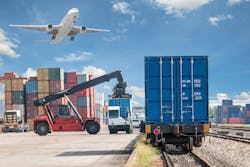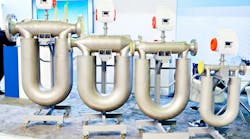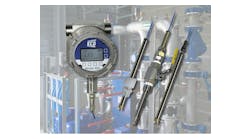For more than two decades, Congress engaged in a cumbersome and sometimes controversial process of compiling legislation that would temporarily reduce or eliminate tariffs on products that are not made in the U.S. The primary objective – and underlying public policy – was to increase U.S. competitiveness, thereby also supporting domestic manufacturing and American jobs. The notion, simply put, was that U.S. companies should not be penalized by what have been called "nuisance tariffs" on material inputs that have no domestic source. So, the legislation sought to remove incentives for factories to close shop, export the means of production to a country with a cheaper labor market and then later import a finished product that could have been made at home by U.S. workers.
This legislation was, and still is, known in Washington circles as the Miscellaneous Tariff Bill, or MTB. Despite all good intentions and historical bipartisan support, the MTB has had a turbulent history, including accusations of nontransparency, associations with earmarks and criticism for lack of participation by smaller companies who lacked Washington representation to assist them through the sausage-making process. As the years went on, the process became more and more difficult for members of Congress to initiate. Even when the process got off the ground, the final package became more controversial to pass. The last MTB was enacted in 2010 and expired in 2013. Congress has not been able to pass one since, and not for lack of effort.
MTB’s troubled past changed this year when President Obama signed into law the American Manufacturing Competitiveness Act (AMCA) of 2016. AMCA reforms the old MTB process from a system under which individual bills are separately introduced by a member of Congress to one under which tariffs are suspended through a petition-driven process managed by the U.S. International Trade Commission (ITC), which has long had a central role in vetting MTB candidates. As a result, the process will be administered with even greater transparency and more certainty.
Under the new hybrid administrative-legislative process, U.S. companies and other entities may utilize an ITC-led petition process to suspend tariffs. Petitioning companies will have 60 days, beginning on October 15, 2016, to submit requests according to newly-issued regulations. The ITC will then evaluate each petition to determine if two key criteria are satisfied:
- No domestic production of or opposition to the product for which the tariff suspension is sought exists.
- The cost to the U.S. government of suspending the tariff will not exceed $500,000 per year.
After it evaluates the petitions, the ITC will post the petitions for public comment before sending a recommendation to Congress that includes all of the successful petitions. Congress can remove individual suspensions from the final MTB package, but it cannot add new suspensions that have not been vetted through the ITC process. This new process satisfies concerns arising from "earmarks" as well as other transparency and good government-related concerns.
Congress, which of course retains final word on tariffs (and all other forms of taxes), would then pass the final package of tariff suspensions as normal legislation. If all goes as anticipated, Congress should complete action on tariff suspension legislation in the second half of 2017. The suspensions are envisioned to run for three years. On October 15, 2019, the ITC will launch another MTB round. If all goes well, the process seems likely to be extended indefinitely.
The MTB has benefited numerous industries, and any product can qualify as long as it meets the criteria. In the past, however, manufacturing intermediate inputs — specifically specialty chemicals and components — have been the largest beneficiaries of temporary duty suspensions. In addition, often overlooked items for potential duty savings include one-time imports of capital equipment or spare parts. For example, in one instance a state transportation authority was able to cut considerable tariff costs on trams purchased for public transportation using an MTB.
MTBs & fluid handling
Companies in the business of chemical processing and fluid management could benefit from the MTB in any number of ways to the extent that any intermediate ingredient, finished product or processing equipment is imported and not made or available in the U.S. A quick glance at recently enacted MTBs clearly demonstrates the vast majority of MTB products are chemicals that cut across various industries, including but not limited to photographic film processing, industrial lubricants and pharmaceuticals. Fluid power cylinders and actuators, monitors, motors, tanks and other pressure-monitoring instruments, however, are just a few examples of other products that could be eligible for duty elimination or reduction.
With the AMCA’s codified and more certain process, companies can now assess possible MTB benefits with greater precision and consider them in business plan development and sourcing strategies. As a first step, companies should consult with in-house purchasing and supply personnel, as well as their customs brokers — if they make their own entries — to begin a review of imported products and duties paid. The next step would be to work with sourcing and purchasing personnel to determine domestic availability. In some cases, companies can rely on prior sourcing investigations and potential vendor vetting to quickly determine whether a product is available in the U.S. and how many companies are likely importing. If a company has a high volume and range of imported products, this type of exercise can help isolate possibilities. Outside consultants can also assist companies as they review import data, identify potential MTB candidates, and even prepare and file petitions.
While MTBs are largely beneficial to the requestor, it is important to keep in mind that they are not company-specific. The reductions or eliminations enacted through qualifying petitions will be included as a new tariff line in the Harmonized Tariff Schedule of the U.S. This means that once in effect, anyone importing the product can take advantage of the duty benefit. In some cases, however, duty savings could be quite significant, so the possibility of free riders and other competition-related concerns is a downside that interested companies should carefully weigh.
Over the years, hundreds of tariffs have been suspended by MTB legislation. It is not clear how many MTB suspension petitions will be filed with the ITC later this year, but it is quite possible that an increasingly trade-dependent U.S. economy means that even more suspensions may be sought. Companies interested in pursuing MTB petitions should review their import records now to identify possible MTB candidates and begin assembling the information necessary to submit a petition. This review can be tedious and time-consuming, but with the clarity and regularity of the new process created under the AMCA, the undertaking could be well worth the effort.
Jennifer McCadney, special counsel, and Greg Mastel, senior international trade/tax advisor, of Kelley Drye & Warren, are former congressional staff members with decades of experience working on former duty suspension bills in the public and private sectors. They have successfully worked with clients to identify and advance MTB candidates through the process.




